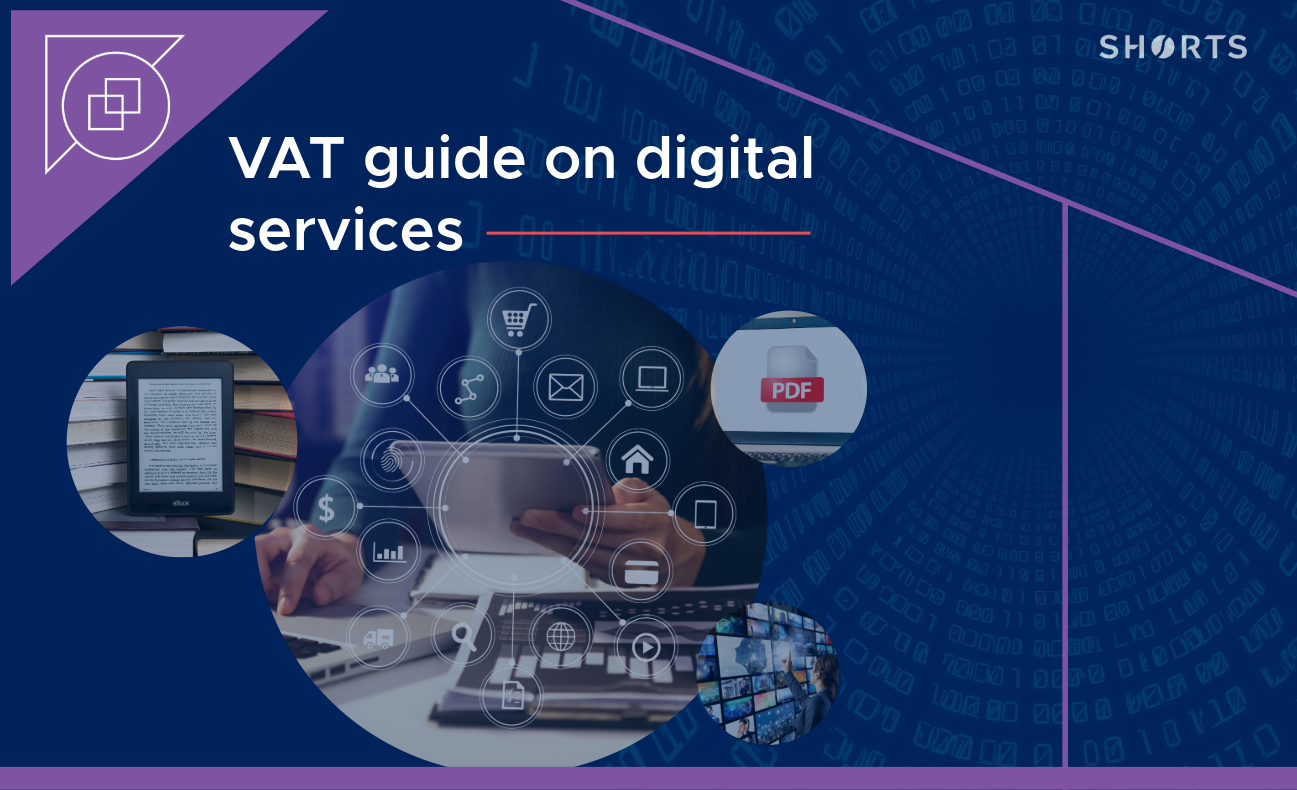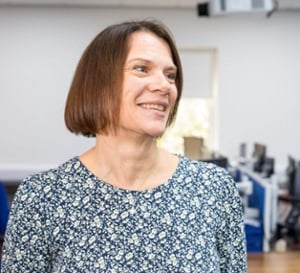
Digital services like streaming, downloads, and online courses are now an essential part of everyday life for many businesses. However the tax rules on these services, and what qualifies for VAT, have been slower to respond compared to consumer pace. Learn the VAT rules for digital services, and what your business needs to do to be compliant.
What is a digital service?
HMRC defines digital services as radio and television broadcasting services, telecommunications services and electronically supplied services.
Radio & television broadcasting services
These include:
- Providing audio and audio-visual content for simultaneous listening or viewing by the general public where there is a programme schedule and a person with editorial responsibility
- Live streaming via the internet at the same time as transmission by radio or television
Telecommunications services
HMRC define these as transmission of signals of any nature by wire, optical, electromagnetic or other system. The following are all examples of telecommunications services:
- fixed and mobile telephone services
- telephone services provided through the internet, including Voice over Internet Protocol (VoIP)
- voice mail, call waiting, call forwarding, caller identification
- paging services
- access to the internet
However, services which are provided over the telephone, such as call centre helpdesk services, are not considered to be digital services..
Electronic services
An electronic service covers e-services delivered over the internet with no or very limited human intervention.
HMRC considers services to be electronically supplied if they are:
- 100% automatic, such as a user downloading content on their device or clicking “buy now”
- Basically automatic, where a small amount of manual labour doesn’t impact the nature of the supply from an e-service.
Common examples from HMRC guidance are:
|
Scenario |
Is It a Digital Product? |
|
A seller sends an automatic email with a PDF attached |
✅ |
|
A seller manually sends a PDF document to a buyer |
❌ |
|
Stock photos available for automatic download |
✅ |
|
Commissioned photos sent digitally |
❌ |
|
Online course with recorded videos and documents |
✅ |
|
Online course with recorded videos and documents, with support from a live instructor |
❌ |
|
Link to online content sent by manual email |
✅ |
|
A live webinar |
❌ |
How is UK VAT applied to digital services?
If you are a UK business selling digital products or services to UK customers, the standard 20% VAT rate applies.
However, some exceptions apply. For some electronically supplied publications, a zero VAT rate can apply:
- Books
- Magazines, journals, and publications
- Children’s picture books
- Brochures, leaflets, and pamphlets
- Newspapers
However, within these exceptions are additional exclusions where the standard VAT rate is applicable.
Example: A seller has an e-publication, but over 50% of the volume includes audio, video or advertising content. The supply will be standard rated and VAT charged at 20%.
We recommend speaking with a VAT adviser on these matters to ensure you’re compliant with HMRC’s regulations.
The place of supply rules for digital services
The place of supply is determined by the country in which the consumer is located. Prior to 2015, the country in which the supplier was based determined the place of supply and the applicable VAT rate.
Currently, a VAT-registered business making supplies of digital services to UK consumers must charge UK VAT. If the supplies of digital services are made to consumers outside the UK, these are not liable to UK VAT. However, they may be liable to VAT in the country where the consumer is based.
VAT on supplies of digital services to consumers via a third-party platform or marketplace is the responsibility of the digital platform, not the business providing the digital service.
Options for UK businesses supplying digital services to consumers in the EU
To account for VAT on digital services provided to consumers in the EU, a UK business can either:
- register for the Non-Union VAT MOSS scheme in an EU member state
- register for VAT in each EU member state where digital services are supplied to consumers
If a UK business registers for the non-Union MOSS scheme, it must use this scheme for digital supplies to consumers in all EU member states. There is no option to pick and choose.
The scheme is only used to declare VAT on sales; VAT on EU purchases must be recovered via the EU VAT refund procedure.
How can I identify my customer's location?
You can ensure you’re applying the correct VAT rate by identifying where your customer resides. The billing address, SIM card country code, bank details and IP address are all details that can be used to determine the consumer’s place of residence.
HMRC’s simplification of rules for digital services presumptions to be made to help businesses identify where a consumers is located. It means a seller can assume the location of the supply of a digital product and determine where it will be subject to VAT. The business doesn’t need to know or gather evidence of the consumer’s country of residence.
Here are some examples where the presumption rule applies:
- WiFi hotspot in a public area, i.e. restaurant, bar or hotel foyer
- A customer’s landline telephone
- On-board transport between two countries; Vat is due based on the place of departure
How to get VAT advice
Our specialist VAT advisory department can help guide businesses through the complex maze of accounting for VAT on digital services..
Our team can also help with other areas of VAT, including:
- Initial VAT registration
- The completion and submission of VAT returns
- Advice on how to correct errors and mistakes
- Assessments
- VAT inspections
- Imports and exports
- DIY house builds

Lynne Gill
My area of expertise is land and property transactions but I have extensive knowledge of both domestic and international VAT and I love complex VAT queries. I have an Honours degree in Business Studies and a VAT legal and technical qualification from the Institute of Indirect Taxation.
View my articlesTags: VAT, Business Taxes
